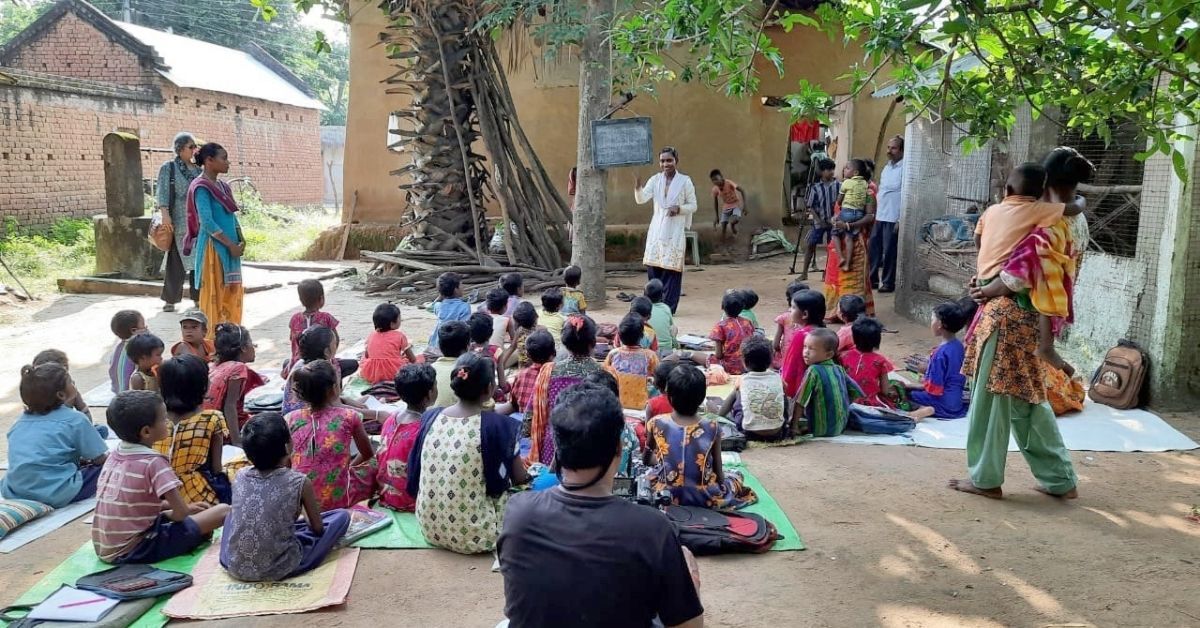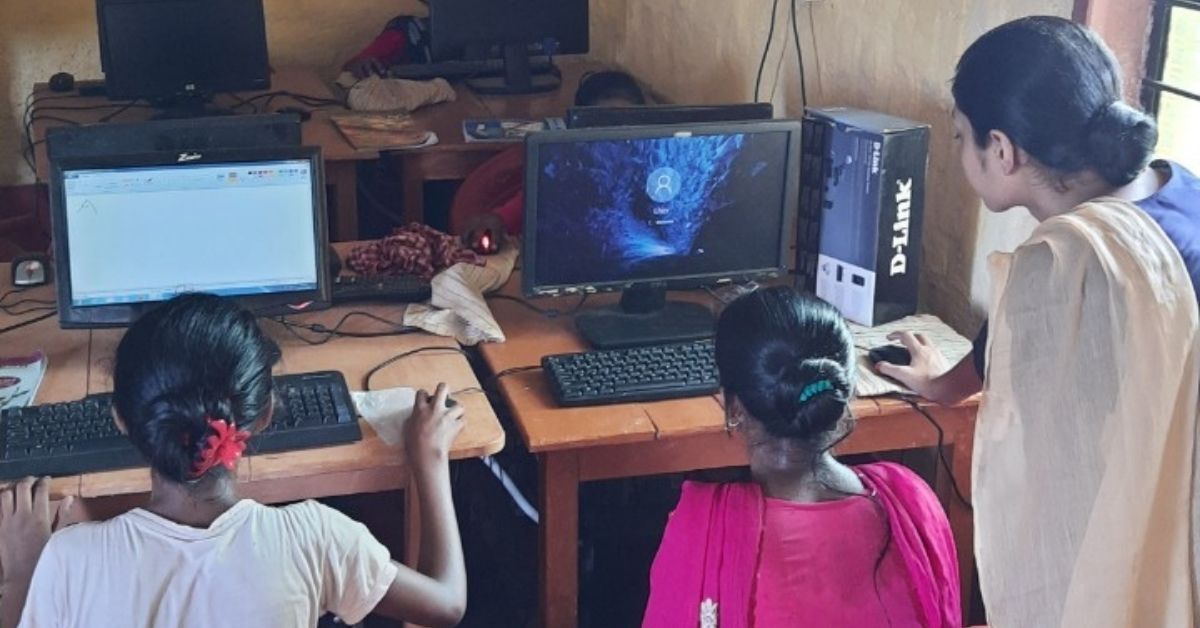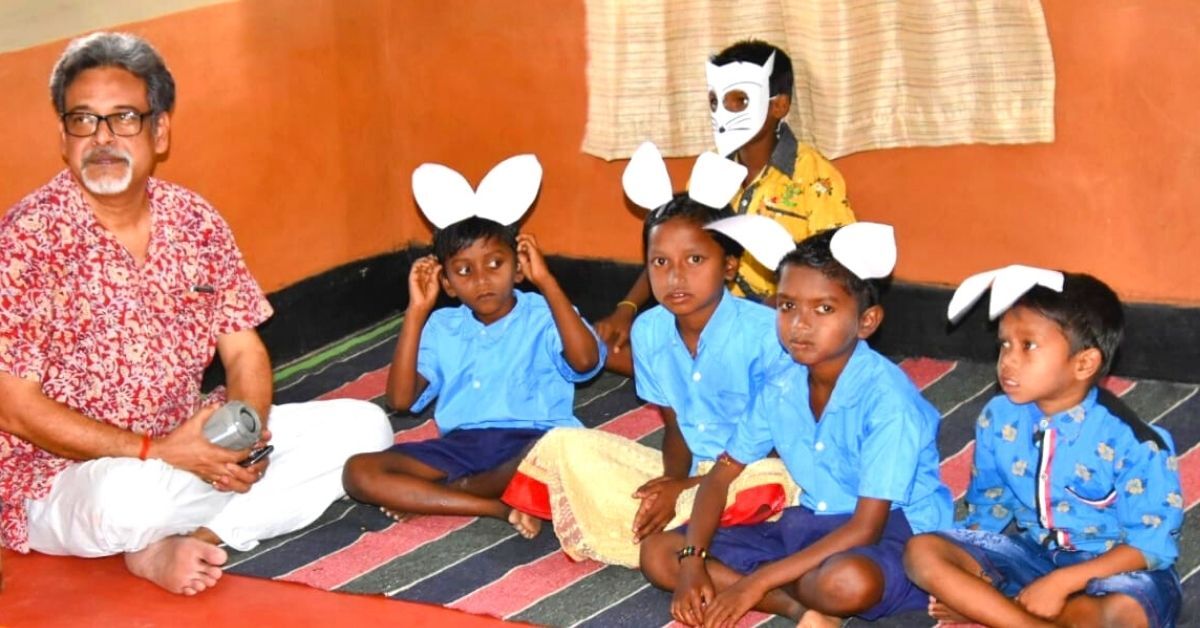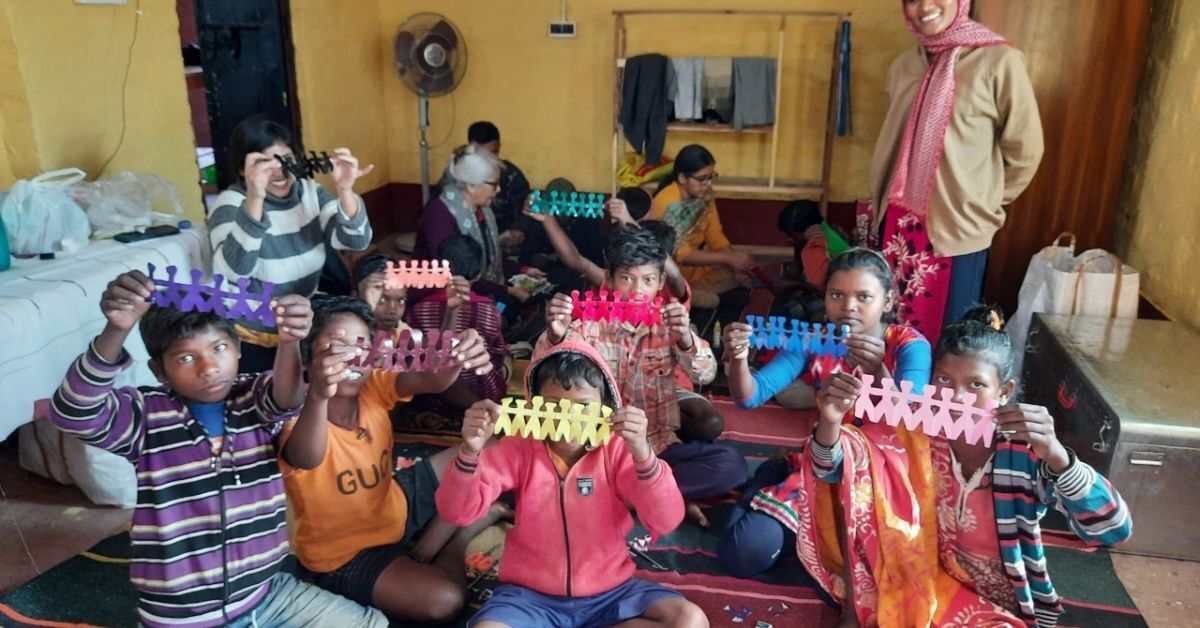Studying in India’s premier institute, IIT-Kanpur still feels like a dream to Umashankar Mondal, a resident of West Bengal’s Tantipara village. Growing up in a weaver’s family, education was never a priority, and he was predestined to join his family.
But he was different, not just from his family but also from other children in the village. Going to school and scoring distinction was his gateway to success.
All he needed was a platform and professional career guidance, which he found in Sayambharataa Rural Skill Development Foundation (SRSDF).
“I was in Class 9 when Gargi (Dey) ma’am, an IIT professor, introduced me to the institute that taught our nation’s brightest minds. I wanted to be a part of that. With her guidance, support and academic teachings, I completed my chemistry honours from Jadavpur University. The foundation believed in me and funded my education. This guidance continued when I gave entrance for MSc for IIT and I cracked it in 2020,” Umashankar tells The Better India.
Umashankar’s journey has inspired several children in the village while giving hope to parents who cannot afford education. His own younger brother has joined the foundation to follow a similar path.
“I would’ve never got out of my village had it not been for the SRSDF. They changed my life and showed me our circumstances can be changed with proper support,” adds the IITian.
Umashankar is one of the many children from the village whose life has changed for the better by the foundation, which was started by a couple of friends in 2014.
Not a Charity

Subrata Bose co-founded SRSDF with his friends Sharbari Bhattacharya, Debjani Mitra, Pradyut Bhattacharya, Sushmita Bose, Sandip Ghosh and Kalpana Dutta.
The software engineer from Kolkata, had been a couple of years into philanthropic work when he visited Tantipara village as part of a social welfare project.
Here, he met Madhusudan Ghosh, a daily wager who asked Subrata to donate some money for his son, Bapan. The desperate father even showed his topper son’s report card.
But Subrata came up with an idea of establishing a system where children from marginal families would be guided by experts and supported financially with the condition that they would repay society. This could either be by paying back the money, sponsoring a destitute child or offering teaching services to the juniors.
Presently, 15 students are being funded by ex-students.

“Charity may not always be helpful and not everyone realises its value. We gave some money to Madhusudan and realised there must be several children willing to go to school. When we did an informal survey, we found that 45% of students, especially girls, in the village dropout after Class 8. The first generational learners accept that they have to work as farm labourers and girls assume marriage is the finish line. We wanted to change this,” Subrata says.
The beauty of SRSDF is that anyone can join the core committee by involving themselves in the planning and execution.
So far, close to 2,000 students across 12 villages have studied under the foundation. It has three learning centres and one resource centre where students are tutored. The foundation has hired 11 teachers and eight senior students who act as mentors.
Coping with the Challenges

The core committee members met with several problems in the initial period. It took a lot of time and effort to build trust and convince parents to send children to the centres instead of taking them for work.
Additionally, most of the members live in Kolkata so commuting was another challenge. They hired villagers to run the resource centres and involved local teachers as well to sustain the project.
“We identified subjects that the students needed the most help with and began the classes with 85 students of Class 8, 9 and 10. The goal was to ensure they completed their schooling. The students, who once couldn’t relate to science, maths and english, were now scoring high marks. For the first time they realised these subjects had real life applications. As the word spread, more students joined and we opened the centres for students below Class 8,” says Subrata.
A year later or so, the organisation began the mentoring programme and gave a monthly stipend of Rs 500 to senior students. These students play, read and tutor the young ones.
The organisation also started collaborating with other local NGOs to formulate policies, provide skill and vocational training and engage experts as guest lecturers.

The centre has an audio-visual room to impart digital learnings. This room is also used to conduct extracurriculars like drama, science workshops and art and craft classes.
“The foundation gives an all-around development to students, which helps in confidence boosting, improves our overall knowledge and enhances our analytical thinking. This is enough for any child to believe they have a bright future,” adds Umashankar.
In their 7-year-long stint, the foundation has observed that not all students may be able to reach Umashankar’s level i.e. higher education. They are provided vocational training in stitching, mechanics, making handicrafts, etc.
Tara Ghosh, a nurse, is one of them. Her father, a daily wage labourer, who sold his cattle to fund Tara’s education but she was finding it difficult to meet the living expenses in Kolkata. She reached out to SRSDF for financial aid three years ago.
“We were surprised but happy to know that the father gave importance to his child’s education. She is extremely hard working and now is employed at a government hospital earning more than Rs 30,000. We also helped her younger brother who will begin his M-Tech in IISC in Shibpur,” adds Subrata.
Tara, who once faced a bleak future and had tremendous self-doubt, has today built a permanent house for her father.
You can reach SRSDF here.
(Edited by Yoshita Rao)
No comments:
Post a Comment